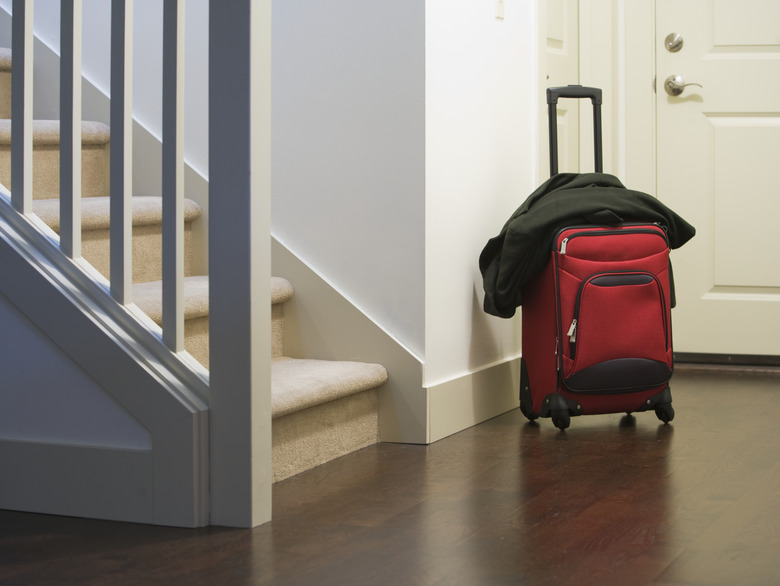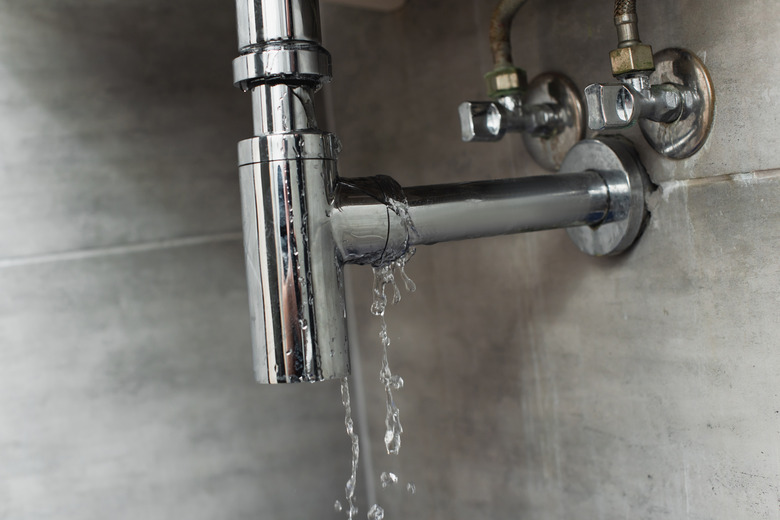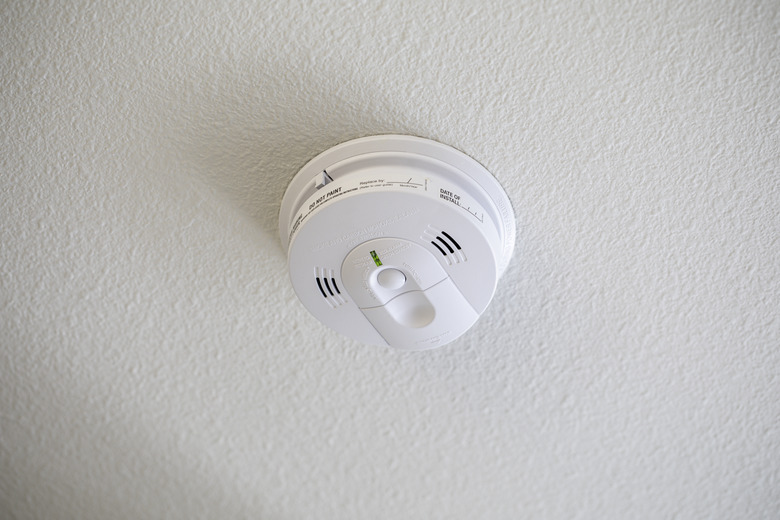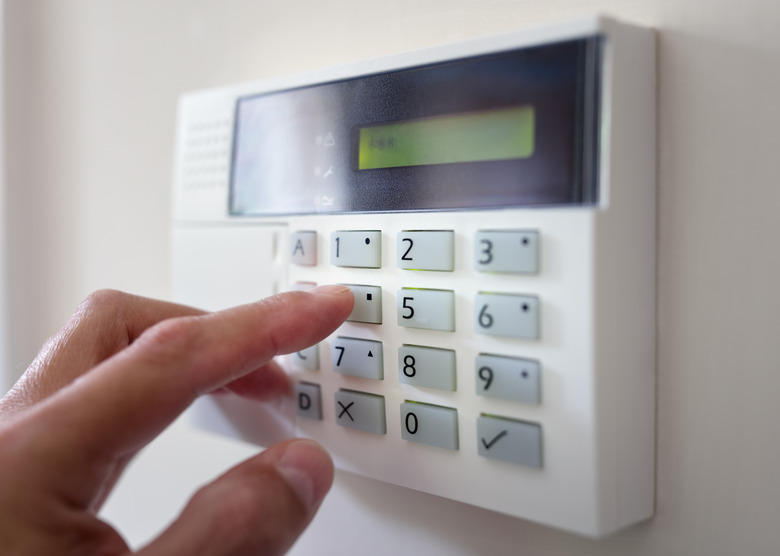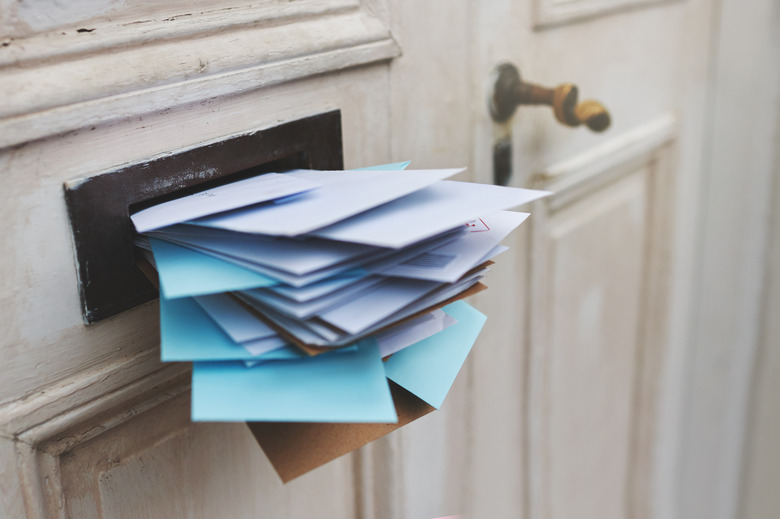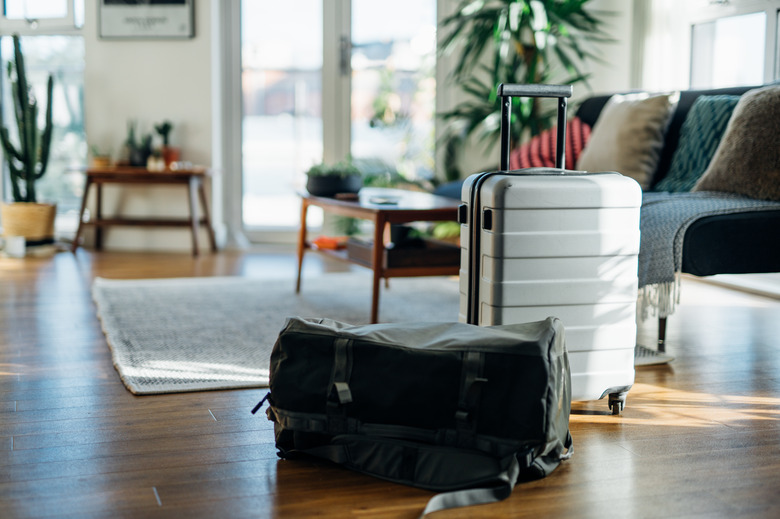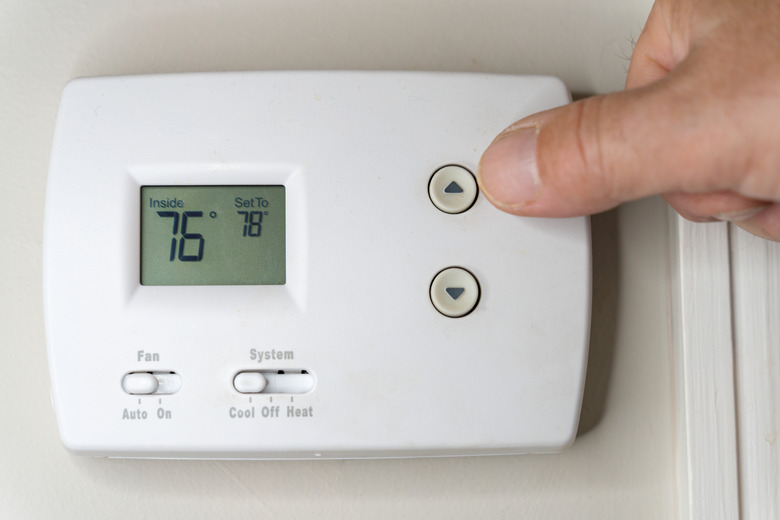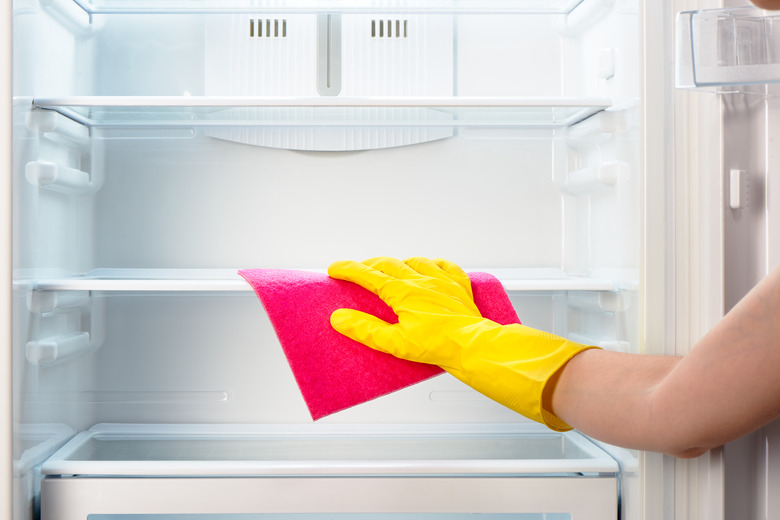The 10 Mistakes People Make When Leaving For A Vacation, According To A Pro
We may receive a commission on purchases made from links.
It's common to put your brain on vacation mode before leaving on a trip, but failing to prepare your home first can potentially spell disaster. "Most homeowners don't take preventative steps before they go away," Courtney Klosterman, consumer trends expert at Hippo Insurance, tells Hunker. "And there are negative effects of doing so."
Leveraging insights based on the types of issues homeowners experience after leaving town, Klosterman developed a definitive list of the most common errors people make before leaving their house for a period of time. Ready to go relax at your destination? Here are the biggest mistakes people do before leaving for a vacation — and how to prevent them.
1. Failing to Prevent Water Leaks
1. Failing to Prevent Water Leaks
One of the most common nightmares homeowners on vacation return to is a water leak. According to Klosterman, nearly one-third of all home insurance claims involve water damage, and the average damage from these claims is a whopping $10,000. Whether you have a little leak or a major pipe burst, she says the best thing a homeowner can do is act quickly to stop the water flow and minimize the damage. Unfortunately, that's not typically an option when you're out of town. Since the last thing you want to come home to is a flooded basement, taking action before you leave town is a wise choice.
Klosterman suggests investing in leak detectors and a smart water shutoff valve so you can instantly turn off the water from anywhere in the world after being notified of a leak. Alternatively, you can shut off the water supply before leaving for a vacation. Turning off the main water valve to your home is especially advisable if you go on vacation for an extended period. If there's any chance of freezing temperatures while you're gone, be sure to also drain the pipes after shutting off the water to protect them from bursting.
2. Not Taking Fire Precautions
2. Not Taking Fire Precautions
Ordinary smoke detectors will do nothing more than screech futilely in an empty house if no one is home when they go off. By installing smart smoke detectors, Klosterman points out that you can be notified wherever you are if the alarm goes off, allowing you to contact a neighbor to look in on your house or to just call the fire department directly.
3. Overlooking Break-In Risks
3. Overlooking Break-In Risks
Whether you're leaving for a vacation, heading to work, driving to the store, or even just going to bed, a home security system can give you peace of mind that your house is protected from break-ins. Klosterman says now is a good time to invest in a security system if you haven't already, as home theft rates have been steadily increasing in 2022 after people started vacationing again after spending nearly two years at home. Research shows that burglars are three times more likely to target a property without a security system than to risk hitting one with such a system.
While many different components can go into a home security system, some of the most effective for those leaving for a vacation include:
- having a security camera by the front door
- a dusk-to-dawn porch light
- a motion-sensor lights on walkways and near any gates
Additionally, smart plugs with timers can make people think you're still at home. "We've all seen Home Alone and how he deters potential burglars," Klosterman tells Hunker, referencing Kevin McCallister's clever use of lighting to make his home seem occupied.
4. Leaving Things Wide Open
4. Leaving Things Wide Open
Remember to take common-sense actions to avoid attracting unwanted attention to your home, even if you have a full security setup. Before leaving, Klosterman says you should close your blinds and take a quick walk around your house to see if any areas of your home's interior are still visible — for example, through the window panes in your door. If you can see inside your home from the outside, take note of any valuable items you can see through that vantage point and stow them out of sight. Just before leaving, double-check that you've locked all of your exterior doors and windows.
5. Letting Mail Pile Up
5. Letting Mail Pile Up
An overflowing mailbox and porch loaded with packages pose an attractive target for thieves while also notifying passersby that you're not home. Klosterman suggests asking the post office to stop your mail service if you will be gone for more than a week. Avoid ordering anything before you leave town and remember to postpone recurring deliveries from companies like Amazon so you don't end up with packages piling up on your porch. Alternatively, you can ask a neighbor, friend, or family member to collect your mail or packages while you are gone.
6. Oversharing Your Plans
6. Oversharing Your Plans
Klosterman says it's a good idea to tell neighbors you trust that you're leaving town so they can keep an eye on things while you're away. You may want to give a key to a family member or friend so they can come inside and water your plants, feed your fish, or otherwise check on things. Alternatively, she says you can give them access without giving them a key by using a smart lock.
However, do not share your travel plans with anyone you don't trust and avoid advertising that you're not home through social media posts. "Always be cautious of how much you're sharing about where you're going and how long," Klosterman tells Hunker. She suggests keeping your accounts private and not posting specific dates or other details to let people know you'll be gone. While we all want to share our vacation pics, she advises waiting until you're home to post them.
7. Ignoring the Weather Forecast
7. Ignoring the Weather Forecast
It can be tempting to turn off your HVAC unit while you're gone to save on your energy bills, but Klosterman points out that air conditioning can protect your home from excessive humidity, and a heater can prevent your home from reaching freezing-cold temperatures. High humidity and excessive heat can encourage mold and mildew growth and can cause your wallpaper or paint to peel.
To protect your home, set the thermostat no higher than 85 degrees. Freezing temperatures can burst your pipes, so if there's a chance of frost, leave your thermostat set above 50 degrees or drain your water heater and pipes after turning off the water supply.
Tip
A smart thermostat — like a Nest — comes in handy here because you can adjust the temperature remotely as needed, and have it set back at your preferred temperature hours before you arrive back home.
Klosterman also advises travelers to be on the lookout for severe weather warnings. If there is any chance of storms, put away your patio furniture or strap it down to protect it from flying away in strong winds or getting damaged in heavy rain or hail. You should also keep up with regular home maintenance projects, such as trimming tree branches that hang over your roof and ensuring weatherstrips around your doors and windows are in good condition.
8. Forgetting About Living Things
8. Forgetting About Living Things
If you have houseguests, pets, or indoor plants, adjust your home's temperature accordingly to keep them comfortable. Always ensure there is enough food and water for your pets while you are gone or recruit someone to check on them while you're gone. And, to keep your houseplants alive, put them in large plant saucers filled with water (or create some DIY self-watering plant spikes).
9. Leaving Electronics Plugged In
9. Leaving Electronics Plugged In
Klosterman suggests that you avoid wasting electricity by unplugging electronics, like microwaves, toasters, and coffeemakers. However, don't switch off all of your circuit breakers because most home security system components and smart home products require electricity. While you may shut off select circuit breakers for parts of your home, leave the kitchen alone unless you clean out your entire fridge and freezer first.
10. Letting Nasty Odors Build Up
10. Letting Nasty Odors Build Up
Avoid dealing with rotting food when you return by throwing out perishable foods in your refrigerator. Never leave dirty dishes in the sink and be sure to run the garbage disposal before heading out. Take out the trash immediately before you leave so it doesn't stink when you get home.
